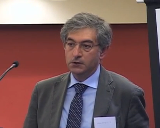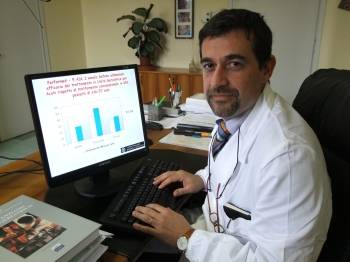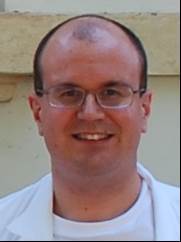Studying at the University of Verona
Here you can find information on the organisational aspects of the Programme, lecture timetables, learning activities and useful contact details for your time at the University, from enrolment to graduation.
Academic calendar
The academic calendar shows the deadlines and scheduled events that are relevant to students, teaching and technical-administrative staff of the University. Public holidays and University closures are also indicated. The academic year normally begins on 1 October each year and ends on 30 September of the following year.
Course calendar
The Academic Calendar sets out the degree programme lecture and exam timetables, as well as the relevant university closure dates..
| Period | From | To |
|---|---|---|
| 1° e 2° semestre (corsi annuali) PROFESSIONI SANITARIE | Oct 3, 2022 | Sep 30, 2023 |
| Lm Sio TN 1A 1S (Coorte 2022) | Nov 1, 2022 | Mar 31, 2023 |
| Lm Sio TN 1A 2S (Coorte 2022) | Apr 1, 2023 | Sep 30, 2023 |
Exam calendar
To view all the exam sessions available, please use the Exam dashboard on ESSE3. If you forgot your login details or have problems logging in, please contact the relevant IT HelpDesk, or check the login details recovery web page.
Should you have any doubts or questions, please check the Enrollment FAQs
Academic staff
 francisca.anayacintas@univr.it
francisca.anayacintas@univr.it
 elena.bravi@apss.tn.it
elena.bravi@apss.tn.it
 arianna.costantini@univr.it
arianna.costantini@univr.it
 jessica.longhini@univr.it
jessica.longhini@univr.it
 0461902665
0461902665
 loredana.pancheri@univr.it
loredana.pancheri@univr.it
 0461281350
0461281350
Study Plan
The Study Plan includes all modules, teaching and learning activities that each student will need to undertake during their time at the University.
Please select your Study Plan based on your enrollment year.
1° Year
| Modules | Credits | TAF | SSD |
|---|
2° Year activated in the A.Y. 2023/2024
| Modules | Credits | TAF | SSD |
|---|
Professional Laboratories (2nd year)
| Modules | Credits | TAF | SSD |
|---|
| Modules | Credits | TAF | SSD |
|---|
Professional Laboratories (2nd year)
Legend | Type of training activity (TTA)
TAF (Type of Educational Activity) All courses and activities are classified into different types of educational activities, indicated by a letter.
Self-management strategies applied to chronic care (2023/2024)
Teaching code
4S010999
Credits
7
Coordinator
Language
Italian
Courses Single
Not AuthorizedThe teaching is organized as follows:
Learning objectives
The teaching aims to explore, in light of the latest scientific evidence, methods and content for self-care behaviours promotion to address the most frequent and relevant health problems. It offers students the opportunity to apply educational and family intervention methodologies (e.g., Calgary Model of family intervention) to specific situations. SELF-CARE PLAN FOR NEURO-DEGENERATIVE DISEASES Module: Learning Outcomes: to address content and educational methodologies to promote self-care behaviours in the patient and family for an epidemiologically relevant neurodegenerative disease (e.g.ALS). ADVANCED METHODS OF FAMILY AND COMMUNITY NURSING Learning Outcomes: to learn and experiment with intervention strategies based on resilience and strengths, recognizing at the same time the family members' experience of the disease and the nurse's skills in managing the disease and promoting health. PHARMACOLOGY: SAFETY SYSTEMS FOR OUTPATIENT MEDICATION MANAGEMENT Module: Learning Outcomes: to understand the principles and methods of safe medication use and pharmacovigilance. Special attention will be given to prevention of adverse drug reactions and their reporting, poly-pharmacology, medication reconciliation, and strategies to reduce and prevent medication errors at home. SELF-CARE PLANS FOR CHRONIC DISEASES Module: Learning Outcomes: to address content and educational methodologies to promote patient and family self-care behaviours in relation to common chronic diseases (e.g., chronic renal failure, home dialysis, and diabetes)
Prerequisites and basic notions
Course prerequisites are the following contents of the Bachelor's Degree and the 1st year of Master Degree: clinical presentation of main chronic diseases and neurodegenerative diseases (Parkinson's disease, Dementia and Stroke), drug manipulation and evidence-based care.
Bibliography
Criteria for the composition of the final grade
Overall grade will be calculated as weighted average of the 4 modules grades and will be expressed out of 30.
In any case, a minimum grade of 18/30 in each module is required.
Career prospects
Module/Programme news
News for students
There you will find information, resources and services useful during your time at the University (Student’s exam record, your study plan on ESSE3, Distance Learning courses, university email account, office forms, administrative procedures, etc.). You can log into MyUnivr with your GIA login details: only in this way will you be able to receive notification of all the notices from your teachers and your secretariat via email and soon also via the Univr app.
Orario lezioni
Ultimo aggiornamento orario lezioni
Documents
| Title | Info File |
|---|---|
|
|
pdf, it, 136 KB, 19/01/24 |
|
|
pdf, it, 530 KB, 18/04/24 |
|
|
pdf, it, 622 KB, 18/04/24 |
|
|
pdf, it, 634 KB, 22/08/23 |
|
|
pdf, it, 1453 KB, 07/02/24 |
Appelli d'esame
COMUNICATO UNITA' DI CRISI (agg. 2/05/2022)
Potranno chiedere di fare l’esame di profitto o di laurea a distanza solo le studentesse e gli studenti in isolamento in quanto positivi al SARS-CoV-2. La richiesta dovrà essere fatta inviando al docente il “Modulo per la richiesta di esame o sessione di laurea o diploma a distanza_rev.02/05/2022”
Guida ai programmi
.
Documents
| Title | Info File |
|---|---|
|
|
pdf, it, 1515 KB, 14/03/24 |
Attività di tirocinio e seminariali
Guida attività seminariali e tirocinio
Documents
| Title | Info File |
|---|---|
|
|
octet-stream, it, 14 KB, 02/05/24 |
|
|
octet-stream, it, 15 KB, 06/11/23 |
|
|
pdf, it, 1266 KB, 02/05/24 |
Prova Finale
Per essere ammessi alla prova finale occorre avere conseguito tutti i crediti nelle attività formative previste dal piano degli studi, compresi quelli relativi all’attività di tirocinio. La prova finale consiste nella redazione e dissertazione, davanti ad una Commissione di esame, di una tesi elaborata in modo originale sulla base di un lavoro di natura sperimentale o teorico-applicativa riguardante l’approfondimento di aspetti manageriali, di ricerca, formativi e di metodologie professionali avanzate specifiche del proprio ambito professionale. Lo studente avrà la supervisione di un docente del Corso di Laurea, detto Relatore, ed eventuali correlatori anche esterni al Corso di Laurea. Scopo della tesi è quello di impegnare lo studente in un lavoro di formalizzazione, progettazione e di ricerca, che contribuisca sostanzialmente al completamento della sua formazione professionale e scientifica. Il contenuto della tesi deve essere inerente a tematiche o discipline strettamente correlate agli obiettivi della Laurea Magistrale. La valutazione della tesi sarà basata sui seguenti criteri: livello di approfondimento del lavoro svolto e rigore scientifico, contributo critico del laureando, accuratezza della metodologia adottata, significatività della tematica sviluppata. Il punteggio finale di Laurea è espresso in centodecimi con eventuale lode e viene formato dalla somma della media ponderata rapportata a 110 dei voti conseguiti negli esami di profitto, con la valutazione ottenuta nella discussione della Tesi. La commissione di Laurea potrà attribuire ulteriori punti anche in base a: a. presenza di eventuali lodi ottenute negli esami sostenuti; b. stage presso Servizi Sanitari di altri Paesi fino a 1 punto aggiuntivo; c. laurea entro i termini della durata normale del corso 1 punto aggiuntivo. Il punteggio minimo per il superamento dell'esame finale è di 66/110. Qualora la somma finale raggiunga 110/110, la Commissione di Laurea può decidere l'attribuzione della lode, se il parere è unanime. Il Collegio Didattico pubblica annualmente sul sito del Corso di studio le linee guida per la stesura e le indicazioni dei vari adempimenti di natura amministrativa e organizzativa.
Student login and resources
Gestione carriere
Stage
In questa sezione è possibile reperire le informazioni riguardanti l'organizzazione pratica del corso, lo svolgimento delle attività didattiche, le opportunità formative e i contatti utili durante tutto il percorso di studi, fino al conseguimento del titolo finale.
Documents
| Title | Info File |
|---|---|
|
|
octet-stream, it, 15 KB, 02/05/24 |
|
|
octet-stream, it, 27 KB, 02/05/24 |
|
|
msword, it, 109 KB, 02/05/24 |
|
|
octet-stream, it, 15 KB, 02/05/24 |
|
|
pdf, it, 470 KB, 02/05/24 |












